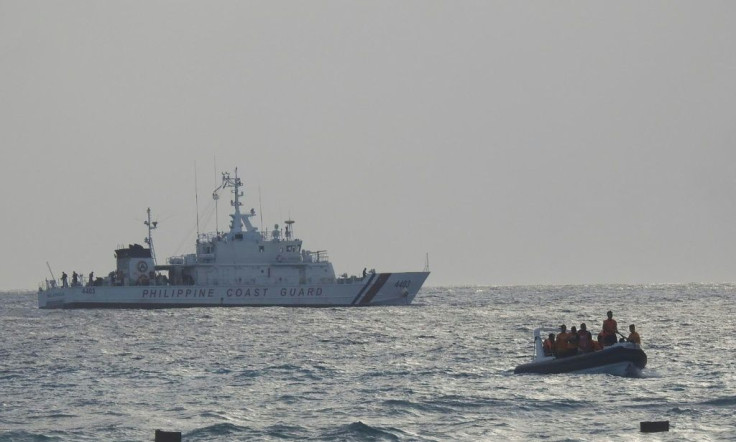Fishermen On The Frontlines Face Beijing's Aggression In South China Sea
KEY POINTS
- China's coast guard, maritime militia vessels are attacking fishermen and damaging their boats
- The U.S. is widely seen as the only nation powerful enough to push back against China
- Washington's inconsistent policies and neglect have damaged their reputation
As China prowls through the South China Sea, fishermen and their small fishing boats from countries having counter-claims over islands are on the frontlines facing Beijing's wrath. With countries in the vicinity divided among themselves, only a few hope for the U.S. to help them push back against a powerful adversary.
Hundreds of Chinese coast guard and vessels belonging to Beijing's maritime militia in the South China Sea are reportedly attacking fishermen, damaging their boats, and also interfering with the oil and gas exploration and scientific research of countries that have claims in the waters.
Beijing, which often invokes the so-called nine-dash line, to justify its claims over the South China Sea, has been seeking to assert its regional supremacy and control the waterways for decades by bullying small nations in the region.
Trillions of dollars of cargo trade transit the South China Sea annually. Naval vessels of the U.S. and allies also conduct freedom of navigation operations in the region regularly.
In 2021, China unilaterally announced that it would take punitive measures against foreign fishermen caught operating within its self-claimed jurisdictional waters that extend to most of the South China Sea. These claims, however, are vehemently disputed by its neighbors and also rejected by an international tribunal.
As was recently reported, Beijing is paying hundreds of civilian ships and fishing vessels of the maritime militia to drop anchor around the disputed islands in the South China Sea region for months. These steel-hulled Chinese civilian ships are notorious for ramming into fishing vessels from other countries in the region.
China's militia ships are used to block the activities of other countries with claims in the South China Sea, a detailed report by the Center for Strategic & International Studies (CSIS) revealed. They're also carrying out unsafe maneuvers risking collisions aimed at impeding the operations of foreign ships in the region, it stated.
The U.S. which is widely seen as the only country powerful enough to push back against China has been inconsistent in its approach and attitude. While the U.S. has repeatedly signaled its long-term commitment to the region, decades of inconsistent policies and neglect have damaged Washington's reputation.
Meanwhile, though China has tactfully avoided the conflict threshold, it has also repeatedly demonstrated that its shrill warning is backed by deadly force ringing alarm bells across the region and in the West.

© Copyright IBTimes 2024. All rights reserved.






















